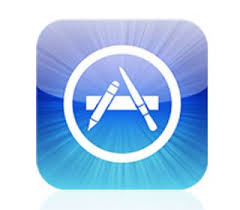During my time at Austin City Limits this year, I got the opportunity to interview Jeffrey Paradise of Poolside prior to his Saturday set. I have been a fan of their work for years, and it was amazing to chat with Jeffrey in-person. Their new album, Blame It All On Love, is available now on Counter Records. Here is our full interview:

Zachary: I just want to first ask you, you’ve done a lot of festivals in your time as a musician. How do you prepare for a festival compared to a regular show?
Jeffrey Paradise: It’s not really that different for me. Just kind of try to get some sleep the night before, and sometimes you may have to make a different set list because you’re playing in the daytime, so maybe your set’s not as long. In general, you just kind of want to be in a good headspace.
Z: Do you have any pre-game rituals you do before you go on stage? How do you get in the zone?
J: Not really, to be honest. I know most people might. We sometimes do some singing warm ups with the band because we’re singing with four people together. So that’s good, and then I chill backstage or side stage with the band and try to connect a little bit. I guess we do. I wouldn’t call it a ritual, necessarily.
Sometimes I’m literally doing interviews right up to the minute before I go on. So, sometimes I get thrown out the window. But, in general, you just kind of want to be in the center place and connect with your band before you go on.
Z: You have your new album, Blame It All On Love. What was kind of the inspiration for making it?
J: I really just tried to clean the slate around my inspirations and just go in with as clear and blank of a mind as possible and just make whatever I was feeling like instead of chill out music or whatever. I tried to ignore that and be like: “What do I feel like making?”
It became a little more songwriters-y, a little more strong structures, a little more indie rock you could even say. So those weren’t necessarily inspirations, but that’s just what happened. I feel it was a return to my songwriting from when I was in high school before I had ever written any songs. It was just a similar feeling.
Z: You have a lot of collaborators on [the album]: slenderbodies, Vansire, Panama, etc. When you’re doing a collaboration, how do [the songs] come to life?
J: Different ways. Panama is a long friend, so we just know each other. Whenever one of us makes a thing the other one would be good for, we’ll trade. Ben Browning and I are friends, so we’ll be like: “Let’s write music together”. Other times, our management will be like “You, this guy is good. You should work together.” I never met slenderbodies. We just traded music online. It is always a bit different. In general, you just go back and forth, either online or in person, until you both like what you’re doing.
Z: From the singles so far, I feel that there is a little bit of a Yacht Rock influence on some of the songs. Is that intentional?
J: I wouldn’t know. It wasn’t intentional, but I love Yacht Rock, so it just kinda came out in the tracks. I created Poolside to be like: “Let me make music based on my actual love and not try to be anything.” I was a DJ for a long time, so music before Poolside was for the dance floor. A track has to work if you’re a DJ, and I wanted to get out of that mindset and be like: “It doesn’t have to work. It doesn’t matter if people dance. It doesn’t matter if they don’t.” It just music. Yacht Rock is one of the things I have always loved. It’s a great vibe. It feels good. It’s interesting songwriting and really good instrumentation. It always gets drawn back to those kind of songs and sounds.
Z: Your debut album, Pacific Standard Time, is just around 10 years old now. How do you feel you have grown or changed as a musician in that time?
J: That is one of those questions like: “What have you been up to in the last 10 years?” Everything and nothing. I have changed a ton. I was in my early 30s when we put out Pacific Standard Time, so I was already a grown man, so it wasn’t like I was changing a tone. In my 20s, I was changing every like 6 months what I liked and what I knew. I have gotten better at production, and I have gotten better at guitar. I am singing now. I think the core things that inspire me to make music have stayed the same.
Z: Staying on Pacific Standard Time, people have resonated with it as a quintessential summer album. What does that mean to you as an artist that people still latch onto that album?
J: I’m f*cking stoked.
When you first start making music, all you really care about is one person liking it or even listening to it. You don’t even really care if they love it. You just want people to hear what you made. I think that’s pretty universally true. So the fact that people listen, people like it, and it has had the staying power of 10-11 years feels really good. I’m just happy it got some staying power. It feels pretty nice.
Z: One of your most popular songs, and one of my favorite songs ever is your cover of Neil Young’s Harvest Moon. The original version by Young is very autumn, but your version is very summery in the way you covered it. How did you turn the song into a summer anthem almost?
J: It just happened is really the truth. The vibe of Poolside’s production and all that stuff was based around some of the influences of percussion and groovy soul music. So in a sense, we just kind of interpolated the song. The lyrics are well crafted, and Neil Young is such a great songwriter. It lent itself to reinterpretation.
Z: You have done a lot of remixes through your time as a musician with artists like Rhye, Tycho, and even Foster the People. When you get asked to do a remix, how do you tackle almost remaking a song for another artist?
J: I have to like the song. Not even think it’s good or bad, but I have to feel like I could remix the song. I get offered a lot of remixes that I turn down even if it’s someone I like or I like the song, but I don’t think I could do a good job with it.
That’s the first step. Then I load up all the stems and take out everything that doesn’t feel like me, and I keep everything that I like. I wind up replaying most everything but the vocals. Every once in a while there is something in the song I can’t do better and they just did perfectly, and I will just keep that. You want to write the song around the vocals. I approach it generally like a cover song with their vocals. Sometimes it works great like in the Rhye one.
Z: Yeah! That’s one of my favorites. I love your work and love Rhye, so to see you two come together is really cool.
J: That was a fun one. It came together really quick too. That’s always a good sign. That’s the gist of it. Sometimes it’s different, but that’s the typical.
Z: I got one more for you. It is our KTXT signature question. We ask this to every single artist we interview. If you were to soundtrack or score a movie that already exists, what would that be?
J: You know, I don’t really watch movies. What would be fun to do is a western movie. I love a certain type of country and gritty country music, and I don’t really get to play it.
Z: Thank you so much!
J: Yeah, no doubt.





